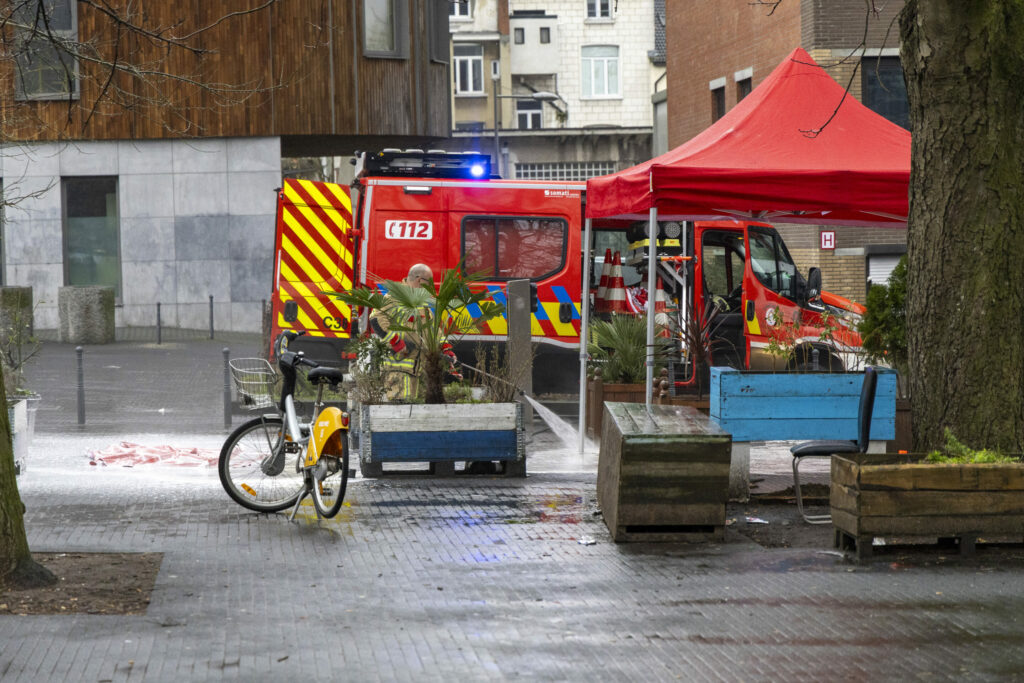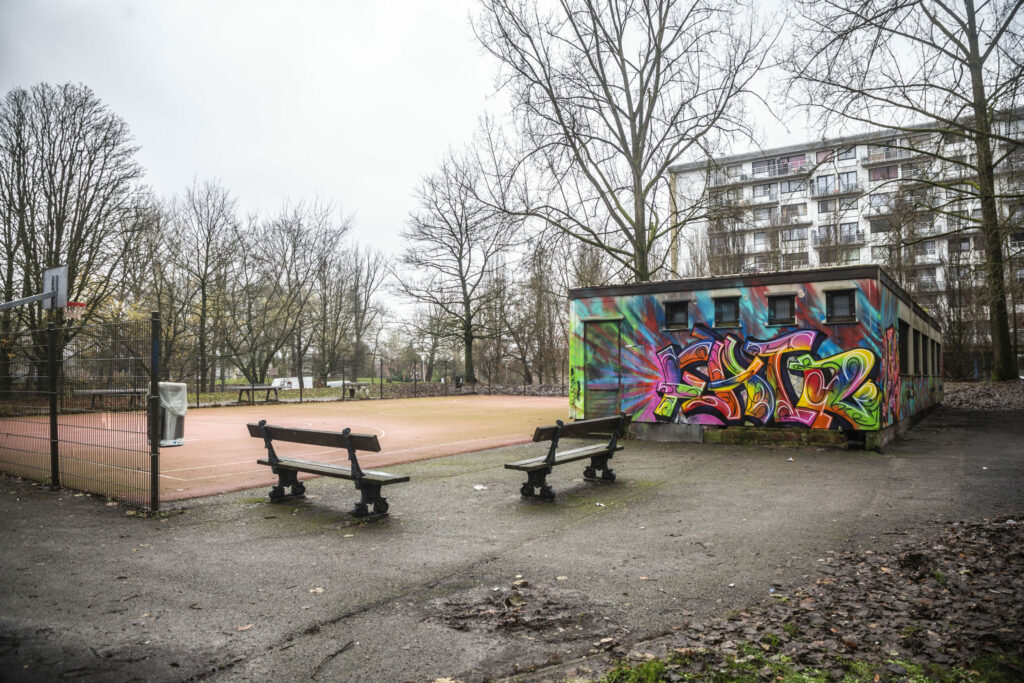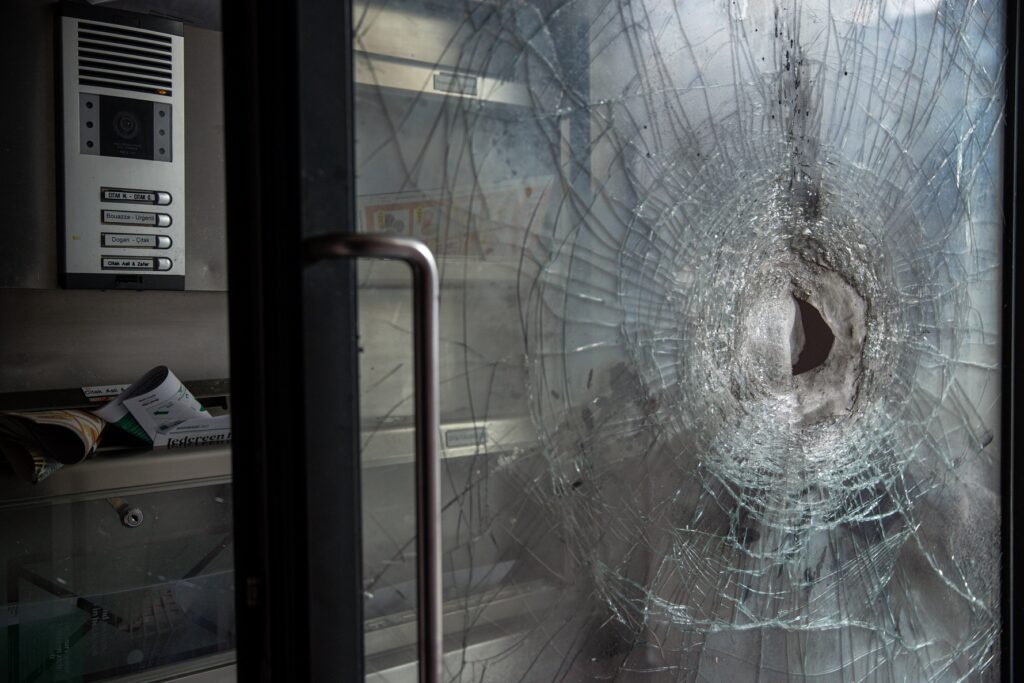While an integrated and coordinated approach to the various hotspots of drug trafficking and use will be implemented across Brussels, the Capital Region on its own lacks the means or funds to fight organised crime.
Two weeks after the first drug-related shootings, Brussels Minister-President Rudi Vervoort convened the Regional Security Council on Tuesday to find ways to better respond to recently escalated violence, along with the managing director of safe.brussels Sophie Lavaux, who is also the High Official for Brussels.
"We are investing more into police recruitment and fighting the issues, but we are under no illusion that this will be enough," Vervoort said at a press conference following the Security Council. "Drug-related issues are not new, but they have taken on an extra dimension with a different mode of consumption."
He pointed to the combination of circumstances in certain areas, such as homelessness, migration, unaccompanied minors and socio-economic problems. "Several layers that have been superimposed in some neighbourhoods. There is not one easy solution."
Combatting serious crime
Still, Vervoort and Lavaux proposed an action plan based on the lessons learned from the Midi plan – which was put in place to "clean up" the Brussels Midi station last summer – and initiatives already taken in areas where drug trafficking is rampant, such as Peterbos in Anderlecht.
"However, these proposals must be accompanied by investments from the Federal Government, which is responsible for combatting serious crime," Vervoort stressed.
The Midi plan showed that greater police presence enabled public services and associations to do their work safely. It also highlighted the need for cooperation from all agencies involved, ranging from healthcare workers and cleanliness services to the police and the Public Prosecutor's Office, as well as the Immigration Department.

The scene of the shooting on Square Jacques Franck. Credit: Belga / Nicolas Maeterlinck
They added that the collective effort of the past six months is effective but can only be sustained if there are additional resources for all agencies involved. "The objective is very clear: breaking this cycle of violence in the various neighbourhoods concerned," said Lavaux.
Additionally, as the decisive action only took place within the defined area of Midi station, the problems simply moved location – as was predicted by critics who feared the plan would address the symptoms but not the cause of the problem. Drug trafficking (both sale and use) has moved to the Porte de Hal area and other locations, which were previously also affected by these phenomena, but not to this extent.
Other hotspots include the Marolles, the area around Porte de Ninove, Yser and Ribaucourt, the North and Midi train stations and various metro stations. The police already focus their work on these hotspots, but the list will now be updated.
Three pillars
First and foremost, it comes down to determining where coordinated efforts will be rolled out. "The issues have long been established by all the people who follow the day-to-day situation, and we convened with them all," Lavaux said.
She stressed that "many actions" to combat these various networks are carried out daily by both the police and the Public Prosecutor's Office, as well as by associations helping homeless people. "But in the face of the violence that has exploded in recent weeks, it is now essential for everyone to work together more closely to avoid the displacement effects."
It is therefore "crucial" that the political, administrative and police authorities, as well as the judicial authorities, follow the same strategy and respect each other's competencies, Lavaux stressed. In all these areas, actions will be taken based on three pillars: security, prevention and neighbourhood planning. The approach will be tailored to the specific situation in each hotspot.

The Peterbos neighbourhood in Anderlecht. Credit: Belga / Hatim Kaghat
For the security pillar, the authorities will establish common standards (either by the Minister-President's decree or in a common police regulation) and more closely coordinate police zones to operationalise the fight against drug trafficking.
For the prevention pillar, efforts will be focused on local prevention to guide drug users and make public spaces safer. Regular actions will be organised for which the police, street workers and cleaning teams will be deployed to ensure a visible presence and use of space. Their aim is to assist both local residents and those who are struggling.
In terms of life in the neighbourhoods, Brussels will implement a policy based on the concept of 'security by design,' which involves the infrastructure and urban layout, the management of green spaces, mobility, lighting and public cleanliness.
In practice, this means that in identified hotspots where drugs are dealt, damage in public spaces (footpaths, roads, benches,...) will be repaired quickly and systematically, more street lights will be added and those already there will be redirected, among other things.
Related News
- 'If Brussels loses, everyone loses': Belgian authorities urged to fight drug violence together
- All Brussels authorities to cooperate against rising drug violence
- 'This is a global problem': Brussels drug violence must be tackled internationally
The operationalisation of the strategy will be coordinated by safe.brussels, which will cooperate with the federal and local police zones, the Public Prosecutor's Office, the mayors, the competent regional ministers and their administrations, but also with the associations in the welfare and health sector (working with homeless people and those struggling with addiction) and certain Federal administrations, such as the Immigration Department and Fedasil.
The Regional Security Council will meet again to approve the Joint Action Strategy.

